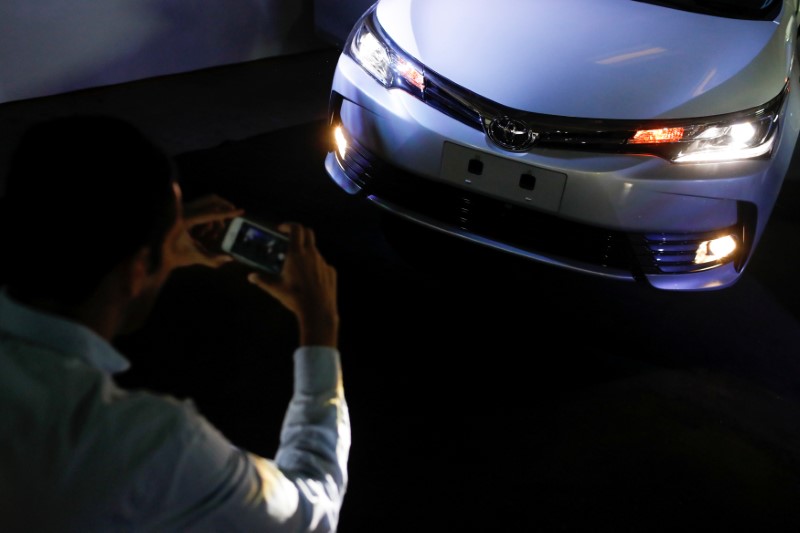By Deisy Buitrago
CARACAS (Reuters) - Toyota Motor Corp (T:7203) on Wednesday unveiled a new model of its Corolla vehicle that will be assembled in Venezuela, marking a bright note for a local auto industry struggling to survive amid the country's deep economic recession.
Toyota said it was currently producing 20 units per month of the new Corolla, which will be sold only in Venezuela, and expected to raise production in 2018. Company executives acknowledged that demand for cars in Venezuela has fallen steadily with the crisis.
"We know the current state of the industry," said Toyota Venezuela president Hiroyuki Ueda at a press conference to present the new vehicle. "However, we have overcome obstacles, we have a new Corolla - and this is for us a reason for celebration."
The once-thriving Venezuelan automotive sector went from selling almost 500,000 units a year in 2007 to about 3,000 vehicles last year, according to the country's auto industry association.
Toyota's existing facility in Venezuela employs 1,100 staff and has capacity of 22,000 units per year but is currently assembling only 100 units per month and expects to close out 2017 with output of only 1,200 units.
Close to 100 multinationals remain in the country with operations at a minimum due to lack of raw materials, resulting primarily from a shortage of dollars caused a dysfunctional currency control system.
Several automakers including Toyota sell cars in dollars, a practice the government prohibit for most items but has specifically approved for the auto industry in order to allow them to import assembly parts without going through the exchange controls.
Toyota will sell two versions of its Corolla: a family model that sells only in local bolivar currency and a luxury edition that will be sold in a combination of bolivars and dollars at an approximate cost of around $30,000.
Wilfredo Valdivia, Toyota's institutional relations manager in Venezuela, said the subsidiary uses revenue from the export of locally-manufactured parts to help maintain operations.

"Our priority and philosophy is to maintain production," Valdivia told Reuters. "We are working at very low volumes, but we have made a commitment."